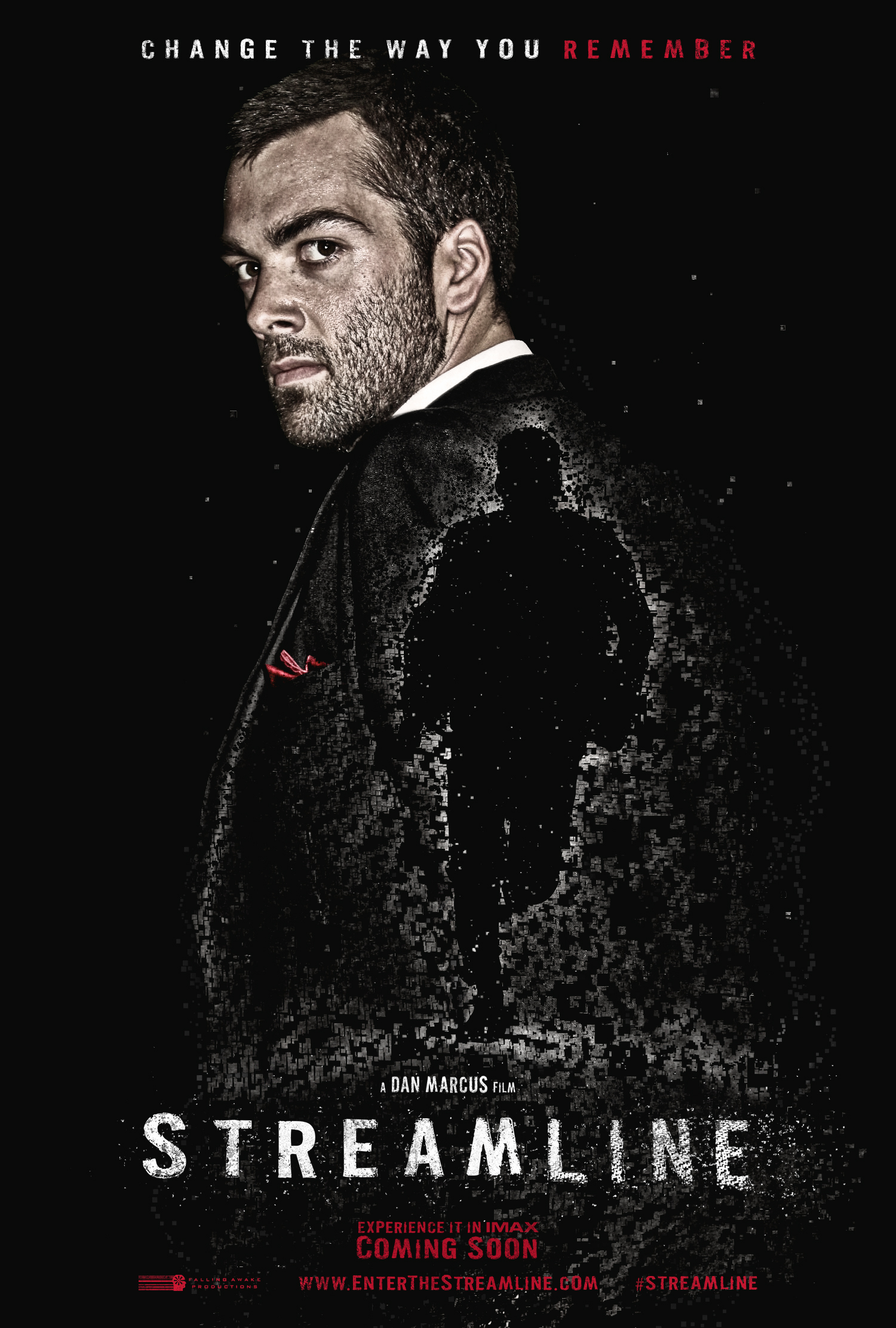
Dan Marcus
Dan Marcus was born May 12, 1989 in Chicago, Illinois. He moved to Sarasota, Florida when he was five years-old. While attending Southside Elementary School, he was encouraged and supported by his teachers and fellow students to hone his writing skills. During middle school he acted and starred in many theatrical school productions. After graduating from the Sarasota County Technical Institute, his interests evolved into filmmaking at the age of eighteen when he co-wrote and directed his first film, “Wake”.
Dan moved back to Chicago, Illinois the same year. He is interested in telling thought-provoking stories about the human experience. His films, including most notably his breakthrough film the science-fiction thriller “Streamline”, have received multiple awards and praise during their festival circuit. He resides out of Los Angeles, California.
Q & A
If the world you created in your film became a reality, is that a world you would want to live in? Is there a Sci-Fi world you’d buy a one-way ticket to?
I would love to live in the sci-fi world created by Gene Roddenberry for “Star Trek”. I’ve always viewed myself as an optimist, and the idea of bettering oneself without the influence of capitalism has always fascinated me. As for the world I helped create, the idea of reliving your own past is an intriguing one. To me, though, I’m much more interested in the future.
Name a Sci-Fi character you relate to on a spiritual level? Who is your Sci-Fi spirit animal/spirit alien?
I’ve always related to Lieutenant Commander Data, an android from “Star Trek” who is constantly trying to understand humanity. As for aliens, Spock would definitely fit the bill in terms of Sci-Fi spirit aliens!
Friend or Foe: humanoid robots with advanced artificial intelligence? What if robots start making their own Sci-Fi films? Will you support them in their endeavors?
That is a tricky question. Artificial intelligence has seen incredible advancements in the last decade, and I firmly believe will continue to see advancements for decades to come. It would be fascinating to see humanity reflected through another perspective, however. Roger Ebert once described filmmaking as a “machine to generate empathy”, so it would be intriguing to see how empathy was generated, if possible, from actual machines. And what that would look like.
In 1996, Bugs Bunny recruited Michael Jordan and Bill Murray to form the greatest basketball squad of all-time, the Tune Squad; you’re Bugs, who’s on your Sci-Fi Tune Squad?
What a hilariously fascinating question! I would definitely pick Spock, who is intelligent but has physical prowess (we are playing basketball, after all). Chewbacca is a must, he could literally rip the arms out of our competition! Ellen Ripley would be a huge asset for many reasons. And lastly, I’d probably pick HAL 9000, because those pod doors could encase the other team easily.
You’ve gotta go through some bad ideas to get to the good ones. Tell us one of your bad ideas. How do you get past the bad ones to find your spark?
Well, my second completed film didn’t really work. It was a time travel story called “Date of Loss”. I wanted to make a time travel film where the words “time travel” were not mentioned by any of the main characters, but it was a bit convoluted and confusing. It helped me realize clarity is very important in allowing abstract sci-fi premises to be accessible to audiences.
Do you consider yourself part of a sci-fi community? Or when your brain is in the future and your body’s in the present, is that isolating?
I’ve seen every episode of every “Star Trek” show at least three times, so I better be considered part of the sci-fi community.
Do you consider yourself more of an analog or digital person? What kind of balance do strike between the two? Is there a disconnect between the technology you make films about and the technology that you make films with?
I definitely consider myself more of an analog person. There is something inherently tangible about collecting cassette tapes, or physical CD’s, or Blu-rays. I like being able to comb through a book or graphic novel. Then again, I’m subscribed to every streaming service imaginable, so I’m definitely a part of both worlds. Sometimes, I do think technology can be a hindrance. I’ve heard this test described elsewhere, but try traveling to a foreign place, a city or town you’ve never been before, and try to navigate without GPS or Google Maps. You can only rely on your sense of direction, the people around you for directions, etc. See how far you can get without having to rely on technology at all. At the same time, I wouldn’t have been able to make any of my films without digital technology. I’m grateful for how digital technology has allowed making films much more accessible, but I’m still leery of relying on technology too much. I think there should be a balance.
When you’re creating the props and sets that make a new world, where do you look for inspiration? How do you create objects that are relatable but unfamiliar?
I look to the original “Star Trek” show. It’s fascinating because sci-fi films have often been incorrect about how technology has evolved over the decades, but “Star Trek” occasionally gets things right. Look at how “Star Trek” has predicted the cell phone via the communicator, touchpads via the PADD devices, etc. I like looking at the past for inspiration, if anything. If you think in broad or abstract terms, the physical form of cell phones have remained the same for a while, even if the technology has advanced. We’re still using watches that look relatively the same, even if they have updated technology, like the Apple watch. So the physicality of technology remains relatively the same, so I always try to keep that in mind when looking at the creation of props and tangible objects.
Lightning round: Star Wars or Star Trek? Philip K. Dick or William S. Burroughs? Practical or CGI? Dystopia or Utopia? Post Apocalypse or Pre Apocalypse?
“Star Trek” over “Star Wars”, Philip K. Dick over William S. Burroughs, practical over CGI, utopia over dystopia, post-apocalypse over pre-apocalypse.


